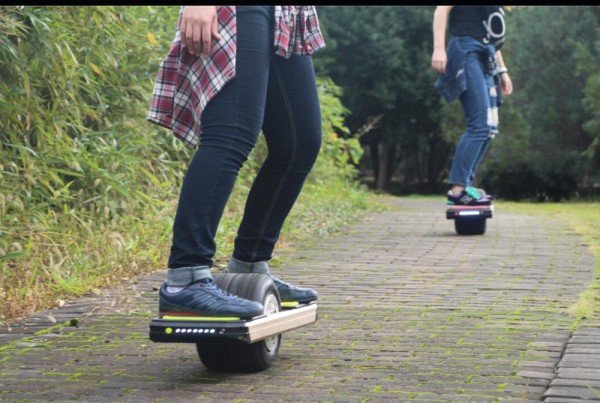CES 2016: Chinese Hoverboard Booth Raided by US Marshals
A Chinese hoverboard-maker’s booth at the CES tech show in Las Vegas has been raided by US marshals.
The officials confiscated all the company’s one-wheeled vehicles and took down its signs after a Silicon Valley-based rival filed a patent infringement claim.
The case is set to return to court in a week’s time.
The Chinese company, Changzhou First International Trade, declined to comment.
Footage of the incident has been posted online by Bloomberg.
While there are many companies exhibiting hoverboards at CES, the Chinese company’s models – which it calls Surfing Electric Scooters – were unusual for having a single central wheel rather than one at each end.
This is similar to California-based Future Motion’s Onewheel vehicle, which uses sensors and computer controls to keep the board balanced.
Changzhou currently lists its device for $550 on the Alibaba shopping site, which is about a third of the price of the Onewheel.
There are two patents involved in the case: one for Onewheel design, which was only issued earlier this month; the other, setting out methods to make the skateboard self-stabilizing, which was filed in April 2014.
“Punitive measures could include a permanent injunction preventing Changzhou from selling the product in the US, monetary damages including lost profits we can prove due to infringing sales, and even attorney’s fees if the court decides it’s an exceptionally egregious case of willful patent infringement,” said Future Motion’s lawyer Shawn Kolitch.
He added that Future Motion had patents pending elsewhere including in China, which it hoped to obtain in order to stop Changzhou manufacturing the device.
This is not the first controversy hoverboards have faced at CES.
Ahead of the event starting, CES organizer announced that attendees were banned from using any type of the vehicles to get about its showfloors.
Dozens of universities and other institutions in the US had earlier banned their use and most of the country’s airlines have also refused to carry them.
The problem is two-fold.
They have been involved in incidents where people have been injured or killed when the rider lost control.
Some of the gadgets have burst into flames as a result of problems with their batteries, leading to concerns that some manufacturers are not following safety standards.

